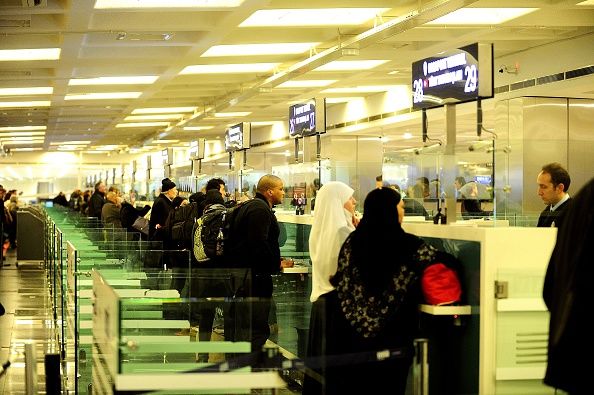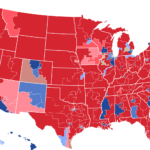The recent terror attack at the Istanbul International Airport has claimed more than 42 lives and 231 wounded so far. Since last year, the state of Turkey has been struck by multiple terror assaults both at the local and regional levels. More major attacks in Turkey’s regions and centers have been reported than in any other country. That comes after a series of terror attacks both from the Islamic State (ISIS or ISIL) and the (PPK) Kurdistan Worker’s Party who are primarily responsible for the series of bombings, suicide attacks, and massive state of hysteria within the Turkish population.
According to the BBC News,
” The Kurdistan’s Worker Party has been a thorn in Turkey’s side for decades. The group, which has Marxist-Leninist roots, was formed in the late 1970s and launched an armed struggle against the Turkey government in 1984, calling for an independent Kurdish state within Turkey.”(World-Europe).
One important fact about the terror attack at the Istanbul International Airport is that the Islamic State has announced but not yet confirmed by officials that they were responsible for the bombing of the airport. On that day,Tuesday, June 28th, 2016 The Islamic State just celebrated their two-years rise of the self-proclaimed “Caliphate,” which is an Islamic organization of governing bodies with separate political, judicial, and civil systems. The PPK has been fighting against the Turkish government to instill a separate and independent state within the Turkish politics for decades. Today, the fight continues but also worsens as the Islamic State continues to rage terror attacks despite the fact that it has been losing considerable grounds in the past few weeks and months. The allied forces have been striking hard where the Islamic State and their fighters have been spotted. As a result, many ISIS fighters have been killed in the process, but many more are there to continue perpetrating terrorist attacks. Since yesterday, more than 250 IS fighters have been killed by airstrikes according to CNN news reports. Consequently, Turkey has been the primary target for its vicious and relentless combat against the Islamic State.
According to Reuters World News, “Three suspected Islamic State suicide bombers who killed 43 people in a gun and bomb attack at Istanbul’s main airport this week were Russia, Uzbek, and Kyrgyz nationals, a Turkish government official said on Thursday.” (30 June 2016). Foreign fighters have been gathering in strength in joining the fight in Syria and Iraq in recent times. As the civil war in Syria continues, and the war in Iraq has not lessened, allied forces are struggling to locate and kill foreign fighters who have previously joined ISIL. One important fact about the nationality of the bombers might be linked to the controversial and recent shooting down of a Russian plane over the Turkish borders. One bomber had Russian origins, and the others two were from different foreign countries. Since the bilateral relations between Turkey and Russia have turned cold and bitter, and the fact that Russia is still constrained by European sanctions, could explain in parts the bitterness of some foreign fighters to attack the state of Turkey.
According Reuters World News, “Wars in neighboring Syria and Iraq have fostered a home-grown Islamic State network blamed for a series of suicide bombings in Turkey, including two others this year targeting foreign tourists in the heart of Istanbul,” (30 June 2016). One logical reason is that Turkey, which is a member of the NATO military alliance and the U.S. led-coalition, has been relentlessly fighting and engaging in destroying Islamic State safe houses and whereabouts. The threats of home-grown terrorists could come from different geographical areas, but one thing is certain is that Syria, in its state of turmoil and ongoing civil war, has festered and worsened the situation on the ground. As Turkey puts more military engagement, more intelligence agencies, and more effort towards eradicating Islamic terrorist groups, the more virulent the fight against foreign fighters will become in the coming weeks.
What is even more complex to grasp is the multiple armed groups and multi-sided armed conflicts that the civil war in Syria has encumbered since its early beginning in 2011. One intricate factor is also the fact that more than 65 millions displaced people have been reported since 2014 by the UNHCR to have exiled and fled from their own home countries, and as a result, they have been pouring into the European Union countries and inside its national borders. That does not include all of the internally displaced and asylum seekers accounted for who have migrated to Europe and beyond. The unprecedented flow of migrants exiled from their countries has also created a hot bed of organized terrorist groups who have joined in fighting for the Islamic State by raging wars against non-Muslim believers in ISIS ideology, apostates, and foreign tourists. Even though the Islamic State’s army of fighters has been weakened at its core, more terror attacks cannot be prevented.
One keystone element in fighting the Islamic State is by sharing information with allied countries and intelligence agencies and by profiling individuals who are suspected of committing future terrorist attacks. However, the war on terror is still viewed as a fight against an invisible visage that it very difficult to advert and stop in its track.
Main Photo:













